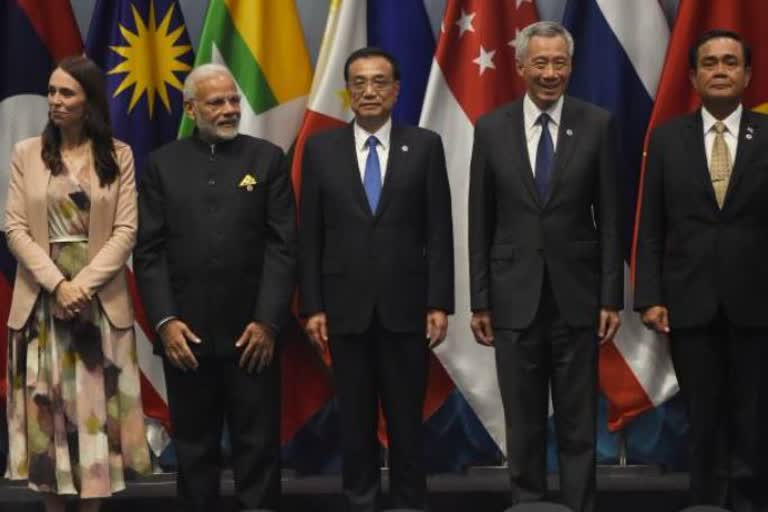Hyderabad: Regional Comprehensive Economic Partnership (RCEP) is gaining the centre stage of debates in the mainstream media for the past few days.
It gained momentum with the Opposition Congress coming out with a stronger attack, opposing the signing of this Free Trade Agreement. While India is facing Hamlet’s dilemma of “To be or not to be” in the Shakespeare’s play ‘Hamlet’, this article is an attempt to throw some light upon the issues and concerns related to RCEP and suggest the way ahead.
RCEP-Issues and Concerns:
The RCEP is a Free Trade Agreement (FTA), which is yet to be finalized between the 10 member states of the Association of Southeast Asian Nations (ASEAN) and its six FTA partners- India, China, Japan, South Korea, Australia and New Zealand.
In India, there is growing resistance against India joining this FTA and the groups that are resisting it, ranges from farmer groups to industry bodies and political parties to civil society organizations.
The biggest concern of the majority of these groups is that this deal will be less beneficial to India and in fact, it would open up the flood gates to the cheap Chinese goods, which would, in turn, distort domestic markets with predatory pricing.
The second concern is the timing of the deal. As the country is facing a slowdown, it is being argued by the political parties that this deal would further aggravate the problem.
In the backdrop of this opposition, Prime Minister Narendra Modi is expected to join other RCEP heads of states in Bangkok on 4 November where the conclusion of negotiations for the deal is likely to be announced.
Clearing the Myths:
In the wake of this uncertainty, it is pertinent to dispel the myths associated with the issues being raised by various stakeholders.
The argument that China’s goods will distort India’s markets does not stand the test of reason on two counts. First, the cheap price is not the only criteria that draw consumers to buy goods.
Aspects like quality
In the short run it may bring in disturbances in the goods market, but in the long run, it will leave the consumers better off with superior quality products at a cheaper price and the producers with improved levels of productivity and competitiveness.
Read more: Kashmir businesses suffer Rs 10,000-crore hit
Second, it appears that the opposition to RCEP based on concessions to Chinese goods is mere political rhetoric that lacks economic reasoning. For instance, if India signs this FTA, it needs to cut duties on 86% of imports from Australia and New Zealand, and 90% for products from ASEAN, Japan and South Korea. While for China, it is 80 per cent of goods imported from there.
The other issue is the timing of the deal. It is to be noted that economic slowdown is a part and parcel of business cycles and it is subject to change with time. Postponing deals like this, based on cyclical aspects of an economy, is not a wise decision.
The Train that India Can't-miss:
In addition to
India needs to tap this potential by deepening and widening its market reach in these nations. It becomes a reality if it takes the export quality of its goods to global standards and improving productivity.
This, in turn, needs huge investments in infrastructure and skill development.
As this article went for press, many of the differences between India and other members of RCEP, related to investor to state dispute settlement (ISDS) mechanism and data localization, were almost resolved and the major bone of contention was India’s demand to shift the base year for tariff cuts to 2019 and an auto-trigger mechanism to check import surge from China.
Given the huge opportunities that RCEP holds for India, India cannot afford to miss this train, not only due to economic benefits but also due to the strategic interests of the nation, in deepening the association with the ASEAN nations, in order to emerge a regional superpower and to check Chinese advancements in the region.
It would be of great interest to watch the events that are to be unfolded in the next week.
(Written by Dr.Mahendra Babu Kuruva, Assistant Professor, H.N.B.Garhwal Central University, Uttarakhand)



